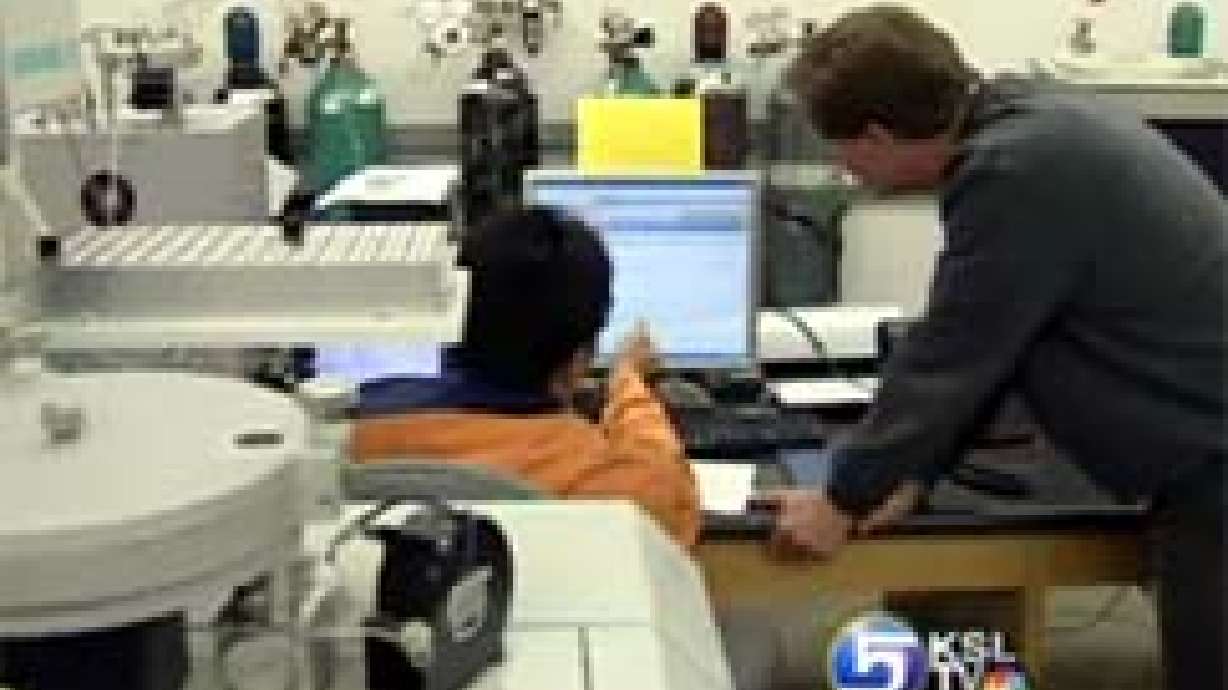Estimated read time: 2-3 minutes
This archived news story is available only for your personal, non-commercial use. Information in the story may be outdated or superseded by additional information. Reading or replaying the story in its archived form does not constitute a republication of the story.
Jed Boal Reporting A team of BYU researchers announced a major breakthrough in the treatment of eating disorders.
It's a simple test, one which could lead to early treatment for patients.
The diagnosis of eating disorders has always relied heavily on truthful feedback from patients, many of whom may deny the problem or lie about it. The researchers at Brigham Young University solved that problem. They developed a method to diagnose eating disorders by using strands of hair.
As many as five percent of young women in the U.S. battle anorexia and bulimia nervosa. Diagnoses of those eating disorders today are based partly on body mass, but also depend on subjective information from the patient, who may hide the illness.

The BYU researchers achieved 80 percent accuracy in diagnosis using five hairs from each participant.
Kent Hatch/Assistant Professor of Integrative Biology: "We wanted to develop a means of diagnosing an eating disorder without depending on a person's answers to a survey."
They plan to develop a way to use it in clinics.
Steve Thomsen/Communications Professor: "The hair gives us more accurate insights into what they are eating, or not eating, than a survey."

The team analyzed the nitrogen and carbon in hair samples from women at a clinic for eating disorders. They compared that data with samples from a control group and determined the molecular factors that determine the illness.
Kent Hatch/Assistant Professor of Integrative Biology: "Hair acts like a tape recorder. It grows out and it records your nutrition, your diet."
A diagnosis is not a cure, but can lead to early intervention and treatment.
A psychologist at New Life Centers, which treats eating disorders, says it's encouraging. A quicker diagnosis followed by early intervention, education and treatment would help patients get better faster.
But the psychologist cautions, it is a complicated illness with a lot of relapse.
The findings were published today in Rapid Communications in Mass Spectrometry.








